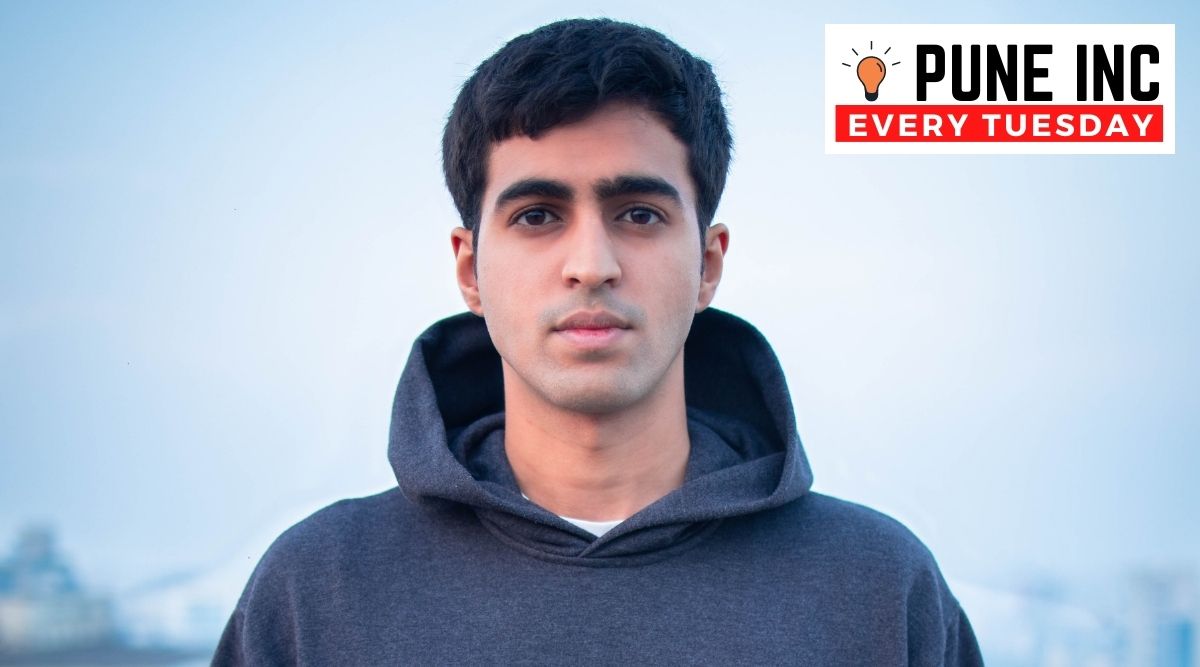 Mainstreet Marketplace was among the first movers in the field when it started a YouTube channel dedicated to sneakers in 2017.
Mainstreet Marketplace was among the first movers in the field when it started a YouTube channel dedicated to sneakers in 2017.For the growing tribe of sneaker fans in India, called sneakerheads, Mainstreet Marketplace is an Aladdin’s cave. Any exclusive, hard-to-get sneaker design is found here and the company’s clientele includes names like Bollywood actor Ranbir Kapoor, who once got a pair of Dior Jordan 1, a collaboration between Christian Dior and Nike’s Air Jordan brand, from here.
Last year, Mainstreet raised an undisclosed amount in seed funding and in November, opened its second outlet, in Delhi. Now, it is in talks with institutional investors to raise a multimillion dollar round.
Behind the brand is an entrepreneur from Pune; Vedant Lamba was 18 when he started the company in 2017 in Koregaon Park. Now, at 23, he is pushing to better the company’s 2020-2021 turnover in the next fiscal. Mainstreet Marketplace does not retail but resells sneakers — linking its business model to a subculture that is prominent in the West. At its heart are the iconic Air Jordans that American basketball star Michael Jordan wore when he was playing. A lot of people wanted shoes like his to show that this was what they subscribed to as a culture and there was even an ad campaign titled ‘Be Like Mike’.
“Because demand was high and supply was low, they ended up forming a resale market. That is what we do. Sneakers that are limited in nature are what you find at our store. Anything you don’t get anywhere else, you get with us. It is very primal to want items that are, both, scarce and sought after by other people. Sneaker culture is built on identity,” says Lamba.
Best of Express Premium
Among the store’s catalogue are the coveted Air Jordan 1 Mochas, which were launched a few years ago and cost around Rs 25,000 a pair. Today it can fetch around Rs 60,000 in the resale market. “In India, the market has only just started growing. There are not enough products in the space for consumers to really develop the market. It will take a few years. We are very early. You find people who are not sneakerheads make fun of those who are,” he adds.
Mainstreet Marketplace was among the first movers in the field when it started a YouTube channel dedicated to sneakers in 2017. Within two months, it had a store that sold these coveted sneakers. “There was no sneaker culture at the time and we saw that as an opportunity. Smarter people would know that the market was not developed so there was no real opportunity. But my naive enthusiasm had me thinking we could build it. In retrospect, we know that an individual or an organisation cannot build a culture. We can participate in it and facilitate it at some level, but there are too many stakeholders and players involved. Everybody has their own user journey and consumer story attached,” he says.
Within a few months, and all the mistakes that college students could make in a business, Lamba shut the physical store and moved to Mumbai, where he struggled for two years and built a network as well as a finer sense of business.
By the end of 2019, revenue had just begun to stabilise and the focus had shifted to getting Mainstreet Marketplace its own store in Mumbai. “We had a grand launch planned for my 21st birthday — which turned out to be the first day of the national lockdown (due to Covid-19). So, we had to indefinitely push the opening and I had to come back to Pune,” Lamba says.
For the next six months, living with his parents in Pune, Lamba turned around his nascent company — registering around 600 per cent month-on-month sales growth. “We made more money in my first two months in Pune than my entire two years in Mumbai combined,” he says.
Clients come from all ages and classes, but they follow the sneaker hype and trends. Mainstreet Marketplace once sold a Rs 4.50 lakh pair of sneakers to an eight-year-old, bought by his mother. “You can buy a pair for Rs 20,000 and sell it for a profit after wearing it too, sometimes. It does not necessarily have to be an expense, people can also look at sneakers as assets,” says Lamba. Another profile is people who are aware of the status associated with sneakers and want to flaunt the styles.
After Mainstreet Marketplace exited Pune in its infancy it has not returned. “I don’t think the problem was with Pune as much with me at the time. The business ecosystem in Pune facilitates all sorts of commodification business and IT services as real estate is easy and the cost of living is low, among other benefits. When it comes to building a brand, however, I see there is a restriction on its growth,” he says.
The proximity to Mumbai also means that “when it comes to living an opulent lifestyle, people from Pune prefer shopping in Mumbai”. ”As a startup ecosystem, I hear the city is exciting. Growing up in Pune was nice but I feel the city is also a little laid-back. In cities like Mumbai, there is a different kind of energy and you have access to tremendous opportunity,” he says.
Coming up, Mainstreet Marketplace is stabilising operations, automating several aspects of the business and deploying technology to improve its customer experience, among other things. “Once that is done, the money that we are raising now will go into pouring gasoline on the fire we have already ignited and scaling a lot faster,” he says.
- The Indian Express website has been rated GREEN for its credibility and trustworthiness by Newsguard, a global service that rates news sources for their journalistic standards.

